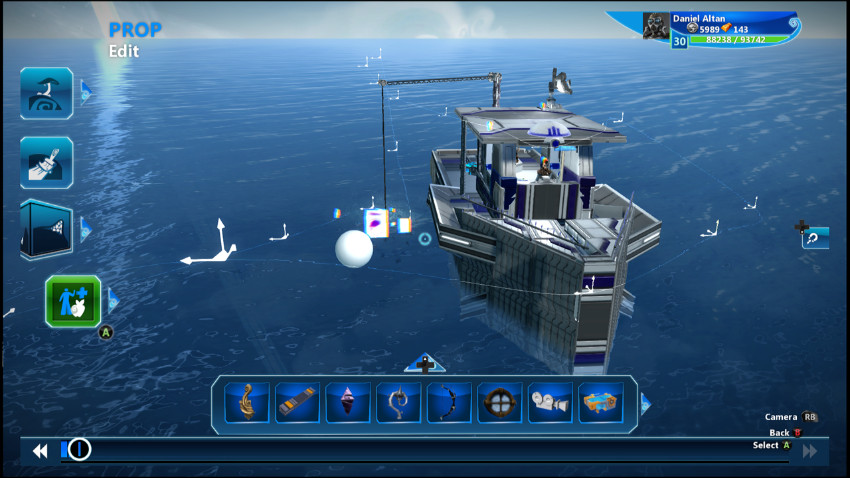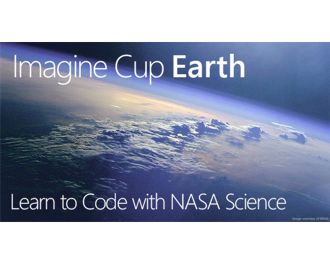| Imagine Cup Earth Final Round |
| Written by Kay Ewbank |
| Tuesday, 24 May 2016 |
|
The winners of Round Two of the Imagine Cup Earth, a worldwide contest organized by Microsoft in conjunction with NASA for students aged between 6 and 18, have been announced. The deadline for Round Three is approaching, but there's still time to take part. The aim of Imagine Cup Earth is to combine learning to code with exploring the latest science about Earth, and entrants can use NASA’s publicly accessible content and data from the earth-science missions. There are eighteen prizes over the three rounds, totalling $36,000 in prizes, with different categories aimed at beginners and intermediate students. Entries in the Beginner category should be an earth-science themed game, app or simulation created using Microsoft’s free learn-to-code tools, including Kodu Game Lab, Microsoft Touch Develop and Project Spark. There are four main ideas for the basis of the project:
The main winner of the Beginners category for Round Two was a game titled Ode to the Tuna, developed by Daniel, a 15-year old from Mexico, using Project Spark. In the game, the player first selects one of five ship models, customizes its color scheme and then has 12 minutes to catch as many tuna as possible. Each time you encounter a school of tuna, you must beat a mini-game (like moving the right stick back and forth as quickly as possible or entering the proper button sequence). How well you do in the mini-game determines how many fish you catch. The judges chose this as the winner because of the cool graphics and the gameplay’s complexity.
The second prize was won by eight-year old Medhansh from India with a third-person world-building game where players must develop a civilization while carefully balancing industry and agriculture and maintaining air quality. The judges liked how much the game emphasized strategic, sustainable thinking. In the Intermediate level contest, students have to create a web app using NASA data and imagery, coding in HTML5/CSS/Javascript, Python, or other web languages of their choice. The web app should use real scientific data showing algae levels in Earth’s oceans measured by a satellite detecting Chlorophyll-A in the water. What the app does with the data is up to the entrant. First prize in Round two of the Intermediate category was won by Simran of India, whose application uses data from NASA to predict algae growth in the Bay of Bengal. The judges liked the high interactivity of the app, including its predictive question-and-answer sidebar and the variety of environmental conditions (like the temperature and salt content of the water) that users could manipulate. The second prize in this category was won by Peter of Poland with a fast-paced strategy game written using JavaScript, open source libraries and an API for calculating geographical distances. The game puts the player in the shoes of a manager at a biofuel production company who must maintain a fleet of ships harvesting algae blooms in the Bay of Bengal to make biofuel. The judges were impressed by Peter’s addictive, “gamification” of NASA data. There's still time to enter the final round, which will close on 23:59 GMT June 15, 2016. As with earlier rounds, there will be a first prize in each category of $3,000, a second prize of $2,000, and a third prize of $1,000.
More InformationMicrosoft Developer Blog - Imagine Cup Register for Imagine Cup Earth Related ArticlesMicrosoft Extends Imagine Cup To Pre-Teens With Kodu Challenge Teaching Coding To The Next Generation
To be informed about new articles on I Programmer, sign up for our weekly newsletter,subscribe to the RSS feed and follow us on, Twitter, Facebook, Google+ or Linkedin.
Comments
or email your comment to: comments@i-programmer.info |
| Last Updated ( Tuesday, 24 May 2016 ) |



